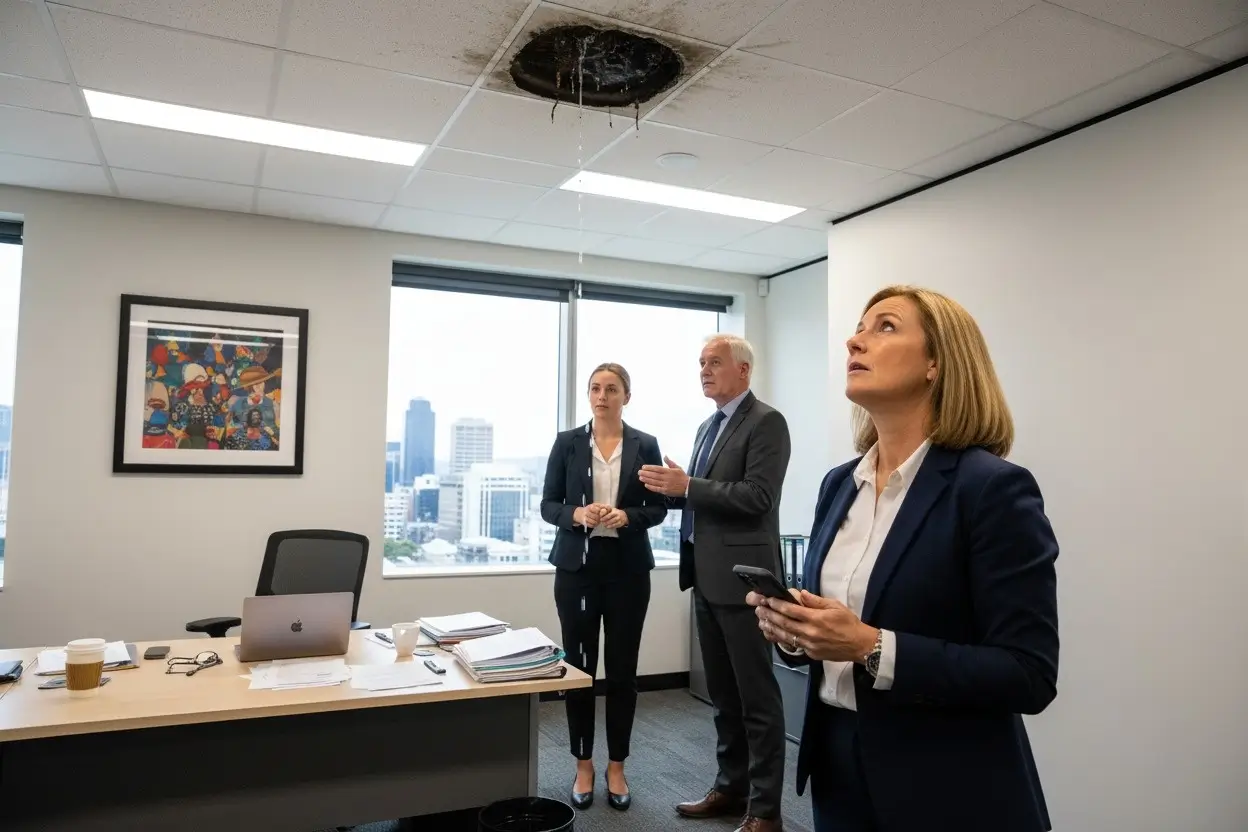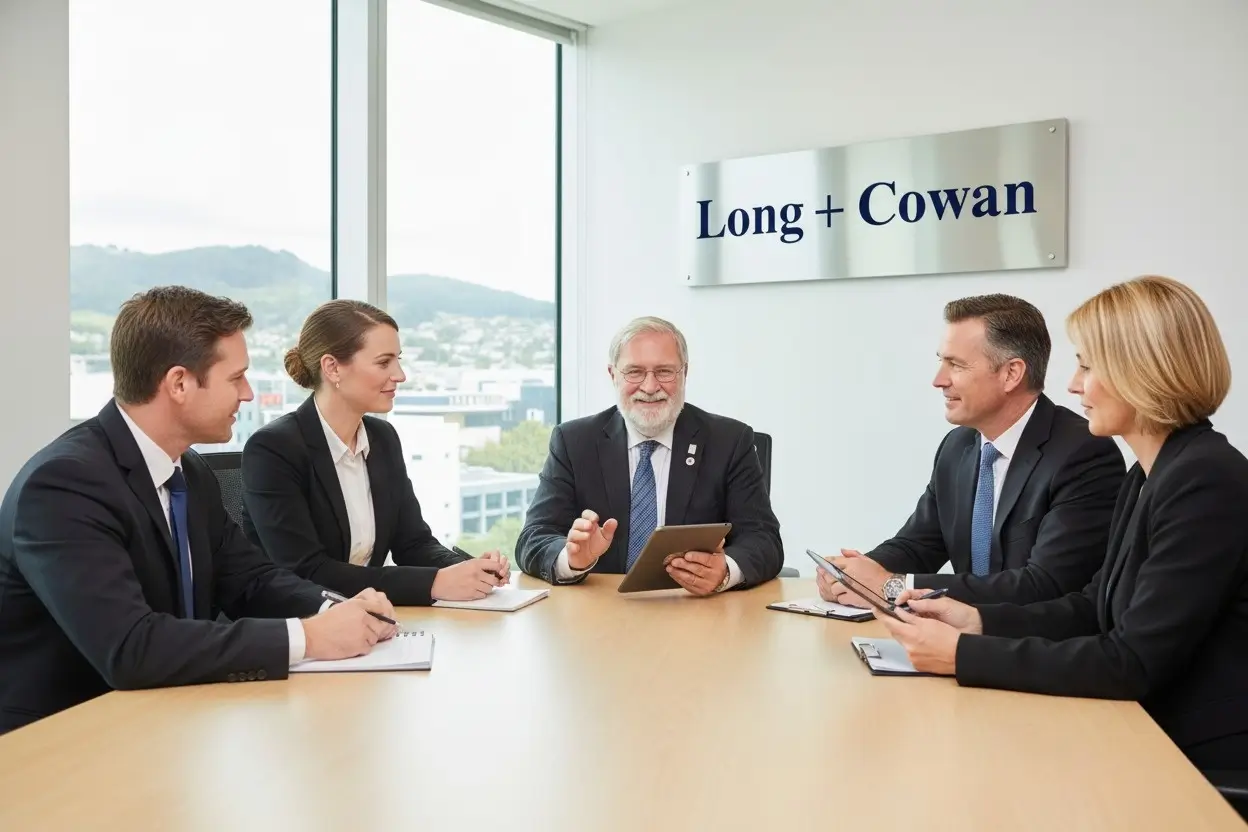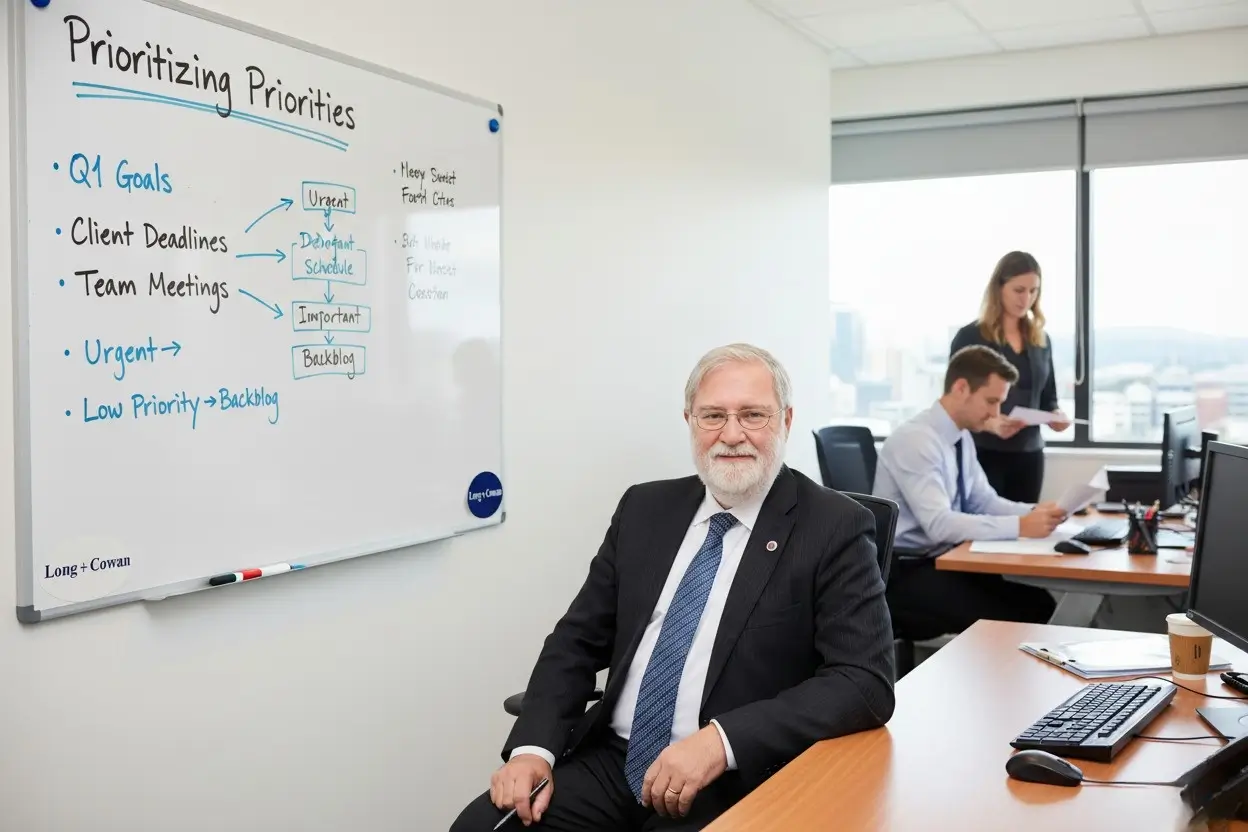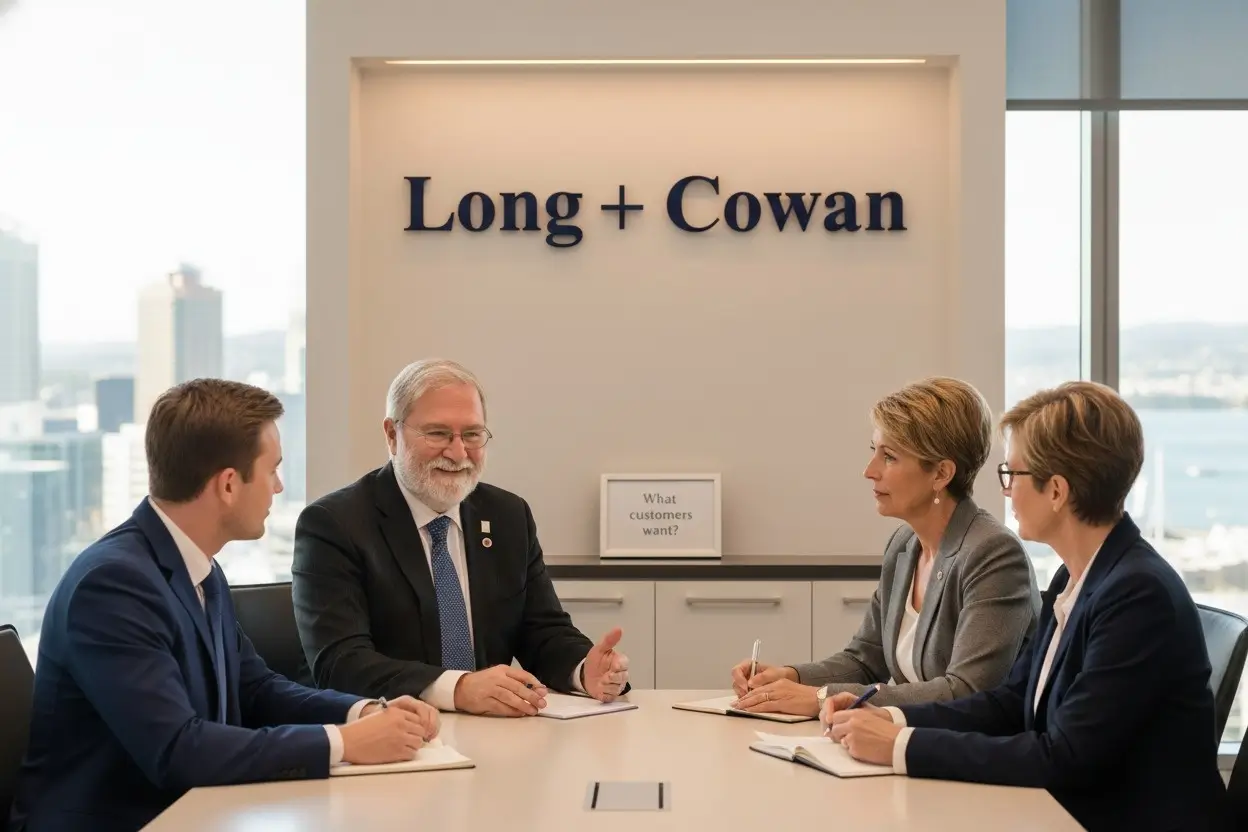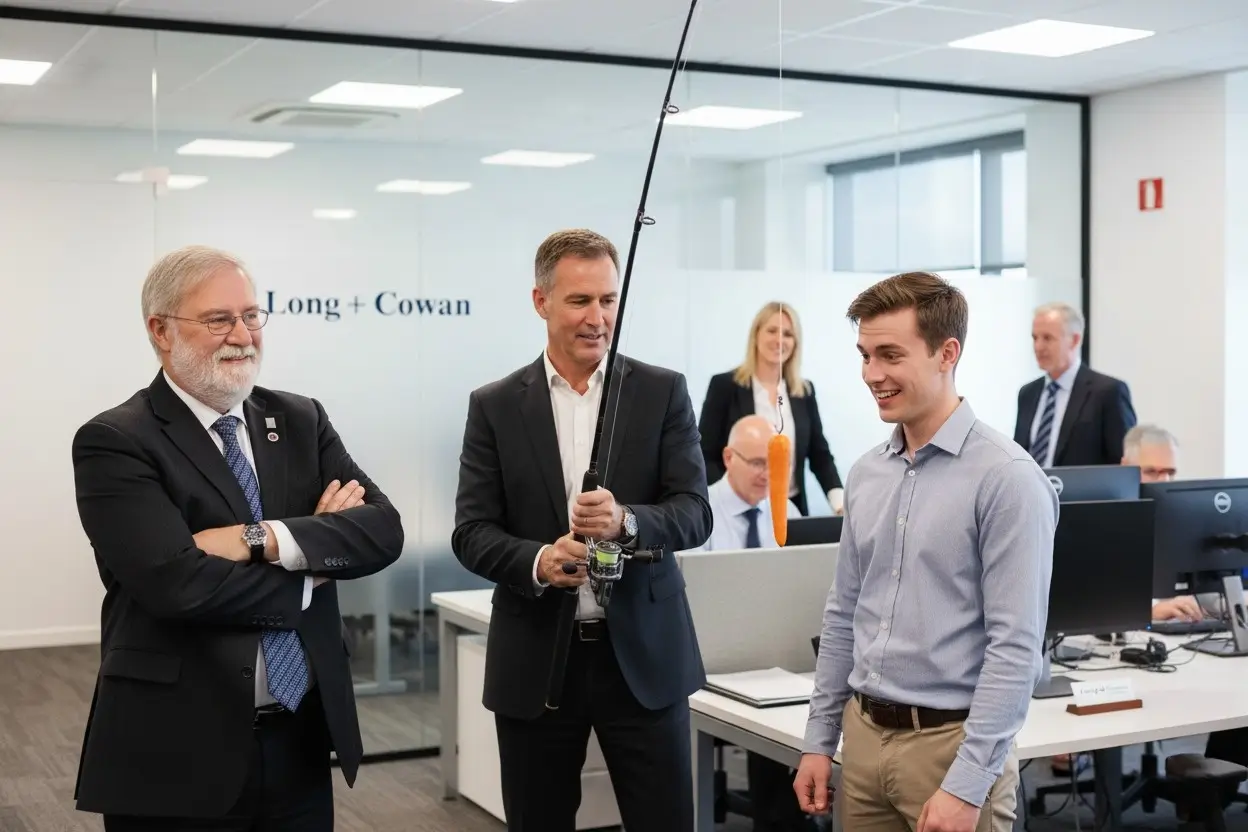Every successful business begins with a goal. At Long + Cowan, we’ve seen that structured goal setting gives purpose and focus to daily operations. Without it, even the best teams drift, wasting energy on tasks that don’t move the business forward.
When objectives are clear, progress becomes measurable. Goals transform broad ambitions into actionable steps. They also motivate staff by providing clarity about what success looks like and how each contribution fits into the bigger picture.
Setting SMART Goals That Drive Results
Effective business planning starts with setting goals that are Specific, Measurable, Achievable, Relevant, and Time-bound — the SMART framework. This method prevents vague statements like “grow revenue” and replaces them with precise targets such as “increase client retention by 10% over six months.”
When goals are specific, they focus your attention on results rather than activities. Businesses that regularly measure outcomes can quickly identify what works, adjust strategies, and maintain control over financial and operational performance.
Aligning Personal and Business Objectives
Personal motivation and business objectives must align. Many Wellington business owners set company goals but forget to consider their own priorities. Aligning both ensures balance and long-term commitment. If your goal is to expand operations, for instance, ensure your personal time and resources can sustain that growth.
This alignment also helps with succession planning, investment choices, and staff development. When everyone in the organisation understands shared objectives, energy moves in the same direction.
Breaking Big Goals into Manageable Steps
Large goals can overwhelm even seasoned professionals. Breaking them into smaller milestones maintains focus and motivation. Each milestone should be clear, achievable, and measurable, building towards the main objective.
For example, if your business aims to double turnover in two years, start by identifying quarterly sales targets, monthly marketing activities, and weekly review checkpoints. These short-term actions make long-term ambitions attainable.
Tracking Progress and Adjusting Plans
Goal setting is not a one-off exercise. Regular tracking ensures that plans stay relevant as conditions change. Use digital dashboards, accounting software, or management reports to monitor financial and operational data.
At Long + Cowan, we help Wellington clients integrate key performance indicators into their financial reports, linking numbers directly to strategic goals. When performance deviates from plan, data highlights where to intervene before minor issues become major setbacks.
The Role of Accountability
Setting goals is easy; achieving them requires accountability. Share objectives with colleagues or advisors who can provide honest feedback and keep momentum. Accountability meetings, even short ones, reinforce focus and encourage timely adjustments.
Many of our clients use scheduled check-ins with their accountants or management teams to stay on track. Reviewing progress regularly creates discipline and turns aspirations into consistent performance.
Involving Your Team in Goal Setting
Goals created in isolation often fail to gain traction. Involving your team encourages ownership and collective commitment. When employees help shape goals, they understand expectations and feel invested in the outcome.
Start by holding planning sessions to gather input. Encourage staff to identify bottlenecks, suggest process improvements, and share insights about customer needs. This approach not only produces stronger ideas but also builds engagement and morale.
Balancing Ambition with Realism
Ambitious goals inspire, but unrealistic ones demoralise. The best targets stretch capability without breaking confidence. Analysing current capacity, market trends, and resource limits helps maintain balance between aspiration and practicality.
At Long + Cowan, we advise clients to blend conservative projections with optimistic targets. This approach creates room for growth while protecting against overextension. Sound business planning supports sustainable success rather than short-term wins.
Financial Planning as the Foundation
Strong financial control underpins all goal setting. Every target — from hiring staff to expanding premises — depends on available resources. Aligning financial plans with operational objectives ensures that ambitions are achievable and supported by accurate forecasting.
Cash flow management, budgeting, and capital planning are essential tools. Our Wellington accounting team helps businesses translate their goals into financial strategies that support long-term resilience and profitability.
Using Technology to Stay on Track
Modern accounting platforms such as Xero and MYOB simplify performance monitoring. Automating reporting, tracking key metrics, and comparing actual results against forecasts provide instant insights. Real-time data replaces guesswork, enabling quicker, smarter decisions.
Automation also frees time for high-value work like strategic analysis and client engagement. Technology doesn’t replace leadership; it enhances it by providing accurate information to guide action.
Overcoming Obstacles and Staying Motivated
No plan unfolds perfectly. External factors such as market shifts, staffing changes, or supply disruptions can challenge even the most disciplined teams. Anticipating these risks early builds resilience. Create contingency plans and maintain flexibility within your goals.
Motivation often dips when progress slows. Celebrate small wins along the way. Recognising incremental achievements keeps morale high and reinforces the belief that the larger target is attainable.
Reviewing and Refining Your Approach
Continuous improvement is central to sustainable goal setting. Schedule quarterly or biannual reviews to assess which strategies work and which need adjustment. Seek feedback from your accountant, mentors, or advisors to ensure that performance data is interpreted correctly.
We encourage Wellington business owners to link review cycles with their financial reporting calendar. This ensures consistency and reinforces accountability across every level of the organisation.
Linking Goals to Broader Business Vision
Short-term goals are most effective when they align with long-term vision. Ask: how does each target contribute to where you want the business to be in five years? Aligning goals with strategic direction prevents wasted effort and keeps your organisation focused on what truly matters.
A clear vision also supports branding, marketing, and investment decisions. When everyone understands the destination, daily operations naturally align with growth objectives.
Making Goal Setting a Habit
Goal setting should become a recurring discipline, not an annual ritual. Businesses that treat it as an ongoing process adapt faster and perform better. Embedding this habit in your culture creates agility, consistency, and focus.
At Long + Cowan, we help clients design structured planning calendars that keep teams accountable throughout the year. This proactive rhythm ensures goals are not just written — they’re achieved.
Moving from Planning to Action
Many organisations fail not because they lack ideas but because they fail to execute. Turning goals into outcomes requires clear responsibility, realistic deadlines, and measurable criteria. Assign ownership for each target and review progress regularly.
Whether your business is in Kelburn, Karori, or Wellington Central, effective implementation transforms strategic thinking into measurable financial results. When goals are executed systematically, business growth follows naturally.
Partnering with Experts to Stay Aligned
Working with professional advisors adds structure and objectivity to the planning process. Accountants bring data-driven insight that reveals whether goals are realistic and how to reach them efficiently.
For personalised support, contact us for more info by filling in an enquiry form or e-mailing or calling us during office hours. We’ll help ensure your planning leads to measurable results and your business achieves sustainable success.



























